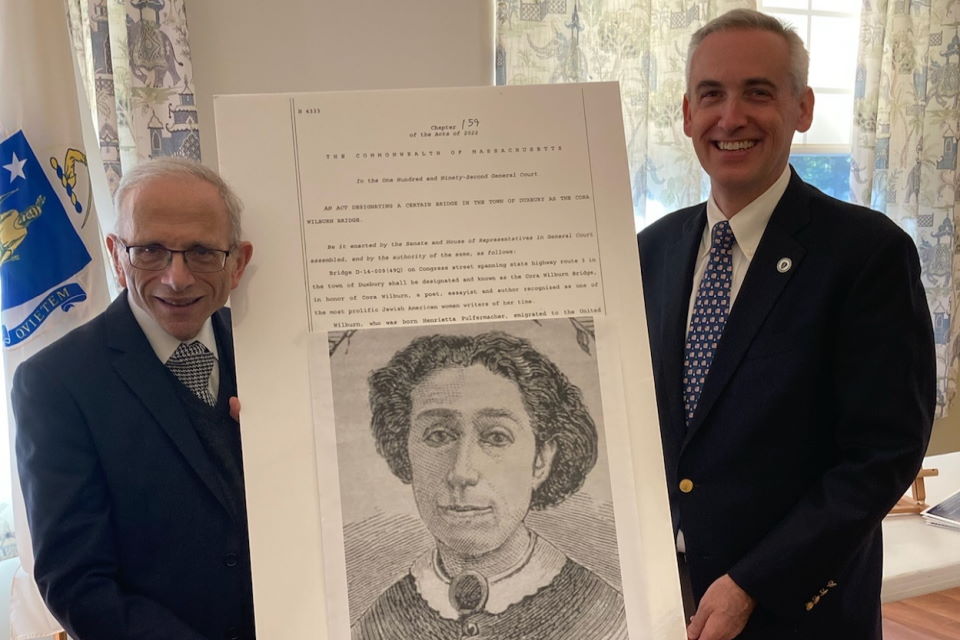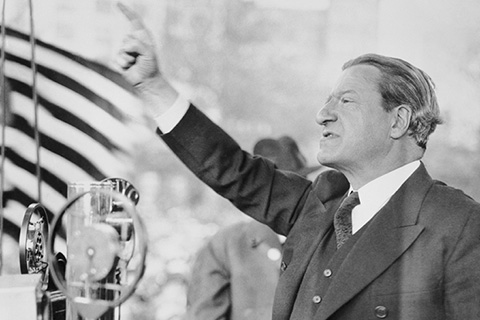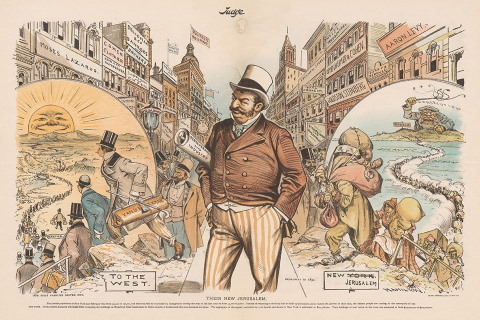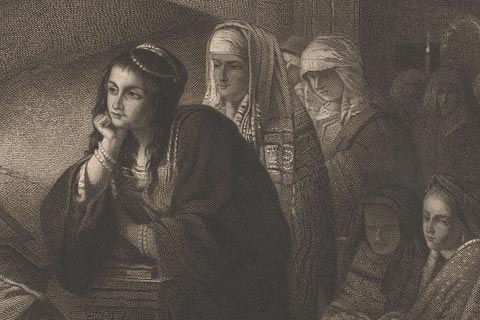A Forgotten Hero of Jewish Literature Gets Her Due

Sarna (left) and Massachusetts state representative Josh S. Cutler hold up a portrait of Wilburn at the bridge naming ceremony on October 12 in Duxbury.
Photo Credit: Courtesy Rep. Josh Cutler
Nov. 16, 2022
By Penny Schwartz, P'13
For more than a century after her death, Cora Wilburn, one of the 19th century's most prolific Jewish women writers, was forgotten.
Now, in a step toward restoring her reputation and recognizing her literary talents, the town of Duxbury, Massachusetts, has named a bridge after her on Congress Street spanning Route 3. Wilburn lived out her final years in humble circumstances in Duxbury.
The honor is largely due to the scholarship and dogged historical detective work of Jonathan Sarna '75, MA'75, the Joseph H. and Belle R. Braun Professor of American Jewish History and University Professor.
In 2019, Sarna republished Wilburn's long-forgotten 1860 novel, "Cosella Wayne: Or, Will and Destiny," along with excerpts from her diary, which he discovered, and a biographical introduction.
"Cosella Wayne," which recounts the story of the eponymous hero's plight after her mother dies in childbirth and she's abducted by an evil gem merchant, is considered the first American Jewish literary novel.
In Sarna's remarks at the October 12 bridge naming ceremony in Duxbury with state, local and civic leaders, he talked about Wilburn's commitment to the abolitionist movement, feminism, and interfaith dialogue.
"She bridged generations, she bridged barriers of faith, she bridged even seemingly intractable racial divides," Sarna said. "How very fitting that we now remember this bridge builder with this bridge."
Born Henrietta Pulfermacher in 1824, in Alsace, France, Wilburn's writing drew on the harsh realities of her early life when her father, an abusive and unscrupulous gem merchant, uprooted her family to far-flung locales across the world.
At age 24 and penniless, she made her way to the United States, where after several years of toiling as a low-paid seamstress for wealthy Jewish families, she embraced a life as a writer, taking the name Cora Wilburn.
Over a span of 50 years, Wilburn wrote poetry, a novel, and scores of essays about women's rights, poverty, slavery, and spiritual identity.
But by the 1870s, Wilburn's writing had fallen out of fashion. She lived alone and moved frequently, plagued by infirmities and dependent on handouts from Boston's Jewish community. She died in Duxbury in 1906 at age 82, describing herself in one of her letters as "homeless, almost friendless, sick, uncared for as I deserve to be."
The effort to name the Cora Wilburn Bridge was spearheaded by Massachusetts state representative Josh S. Cutler, a Democrat who represents parts of Duxbury.
Cutler cited Wilburn as a "staunch advocate for social justice who gave a voice to the impoverished."



